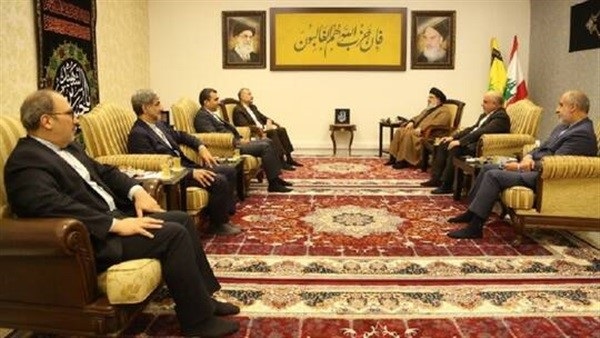Iran, Hezbollah cementing ties

Iranian Foreign
Minister, Hossein Amir-Abdollahian, paid a visit to Beirut, Lebanon, on
September 1, arriving from Syria.
During his visit to
the Lebanese capital, the Iranian top diplomat held talks with Hezbollah's
Chief, Hassan Nasrallah, on latest developments in Lebanon and the region.
The visit comes in
conjunction with Israeli threats to Hezbollah to launch a military operation if
the latter does not stop threatening Israeli forces.
Iranian motives
It is important to
note that the Iranian regime tries to end the political vacuum created in
Lebanon because of the vacancy of the post of the president of the state.
Lebanon has been facing
this problem since last October, following the end of the term of President
Michel Aoun.
The Iranian foreign
minister said he would discuss this issue with various Lebanese parties to
reach understandings leading to the election of a new president.
This throws light on
the mullah's keenness on having a president in Lebanon who serves the Iranian
agenda and interests on Lebanese soil.
This comes within the
framework of what is known as the 'export of the revolution' scheme and
Tehran's attempts to control a number of countries in the region, most notably
Yemen; Syria; Lebanon, and also Iraq.
Amir-Abdollahian's meeting
with Nasrallah may be aimed at enhancing cooperation between Iran and the
Lebanese party to find a president compatible with the various Lebanese
political forces and at the same time serving Iran.
The meeting also had
probably focused on enhancing military cooperation between the Lebanese party
and Tehran in order to repel Israeli attacks in the region.
Iran brooks no delay
in providing various types of weapons to Hezbollah, which explains why the
latter recently reviewed its military arsenal, as a pressure card to convey a
message to Israel that the Lebanese party is able to confront the Israeli
forces in the south of the country.
The mullahs' approach
Iranian affairs
specialist, Masoud Ibrahim Hassan, said the meeting confirms that Iranian
policies regarding its militias in the region have not been affected by any
treaties to restore relations between Iran and other regional states, whether
with Saudi Arabia or the countries of the region.
"The Iranian
approach has not changed and Tehran will not lift its hand off these militias,
even if it has made some concessions over the past few months to open new
horizons for itself at the regional and international levels," Hassan told
The Reference.
"This is
something that Arab countries should pay attention to, and impose conditions on
Iran, most notably renouncing support for these loyal militias in the countries
of the region," he added.







